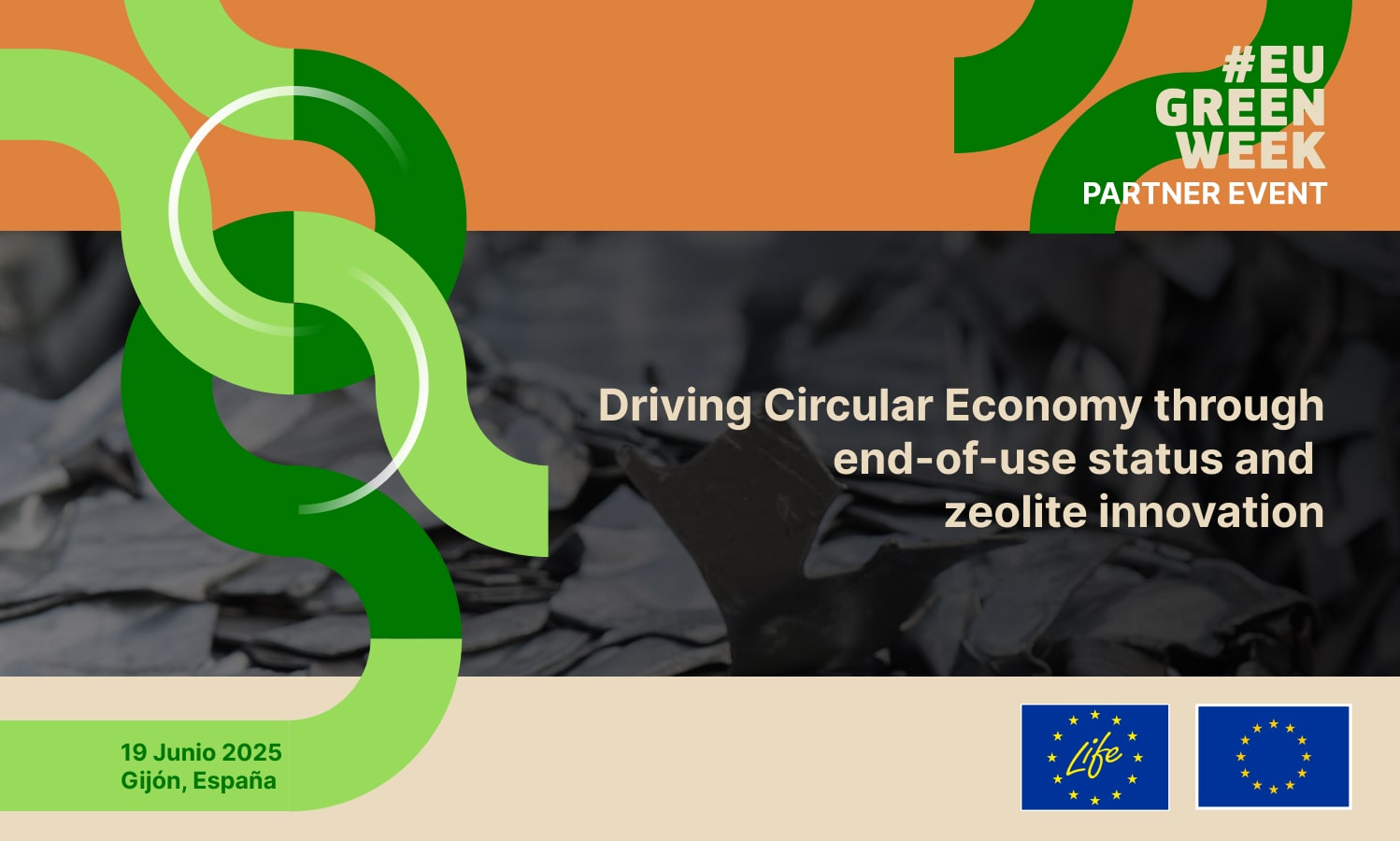
On 19 June 2025, the Z-ONA4LIFE project convened a mid-term workshop in Gijón, Spain, bringing together a diverse group of stakeholders from industry, academia, and policy to discuss the project's progress and broader implications for circular economy innovation in Europe. The event was part of the official EU Green Week initiative, underlining its strategic alignment with EU sustainability goals.
Transforming Waste into Value
The workshop featured presentations and discussions around the project’s mission to transform hazardous industrial waste into value-added materials such as synthetic zeolites. Teresa Miñambres (Plant Director at Alusigma S.A) opened the meeting with a presentation of the company’s activity in recycling aluminium scraps, emphasising how circular practices can reduce reliance on imported raw materials and support competitive local industries. One of the project’s tangible outcomes is the development of a pilot plant to demonstrate the viability of converting aluminium salt slag into high-performance synthetic zeolites.
Aurora López-Delgado (Research Scientist at IETcc-CSIC & Z-ONA4LIFE project coordinator), highlighted the technical aspects and legal framework within which the project is being developed. In particular, she emphasised the importance of achieving end-of-waste certification. She underlined the importance of regulations that support the market acceptance of products containing waste as secondary raw materials. The project aims to serve as a replicable model throughout Europe due to its environmental and economic advantages.
Policy, Standards, and Innovation: Bridging the Gaps
Following these presentations, Raul Sánchez García (Scheme Technical Manager at EQA), Alicia García Franco (President at the Federacíon Española de la Recuperación y el Reciclaje) and Pedro Martínez (Director of Technology Transfer at Paudire Innova S.L.) focused on the certification processes for end-of-waste status within the current regulatory framework, with a particular emphasis on Regulation 333/2011 for aluminium scrap. They analysed the legal and technical requirements for waste to cease being considered as such, thereby facilitating its recovery and reincorporation into the production cycle. They also emphasised the importance of technology transfer to industry as a means of improving the efficiency and sustainability of processes, and highlighted the key role of public aid programmes in driving innovation and business competitiveness.
The Role of Zeolites in Sustainable Industry
Cosimo Masini (CEO of Zeocel Italia) addressed the role of natural and synthetic zeolites in sustainability. Among the applications discussed were wastewater treatment, construction, and biogas production. However, he pointed out some challenges, such as cost, availability of comparative data, and regulatory uncertainty. He emphasised the need for pilot demonstrations and sharing best practices to build confidence in new materials and processes.
Introducing the Z-ONA4LIFE Blueprint
Rita Giuffrida (Project Manager at Trust-IT Services) presented the Z-ONA4LIFE Blueprint, a strategic policy document resulting from over a year of research and stakeholder engagement. The blueprint outlines policy recommendations to foster the uptake of secondary materials in Europe, including:
- Development of educational and training programmes
- Alignment of regional and EU policies
- Financial incentives for businesses using recycled inputs
- Enhanced industrial collaboration through data-sharing platforms
The Blueprint draws from an extensive process involving state-of-the-art analysis, a multi-stakeholder workshop, and an open public consultation.
Expert Panel and Roundtable Discussion
The event was closed with a high-level roundtable, moderated by Teresa Miñambres with industrial and policy experts, including Alejandro Navazas (General Director Environment and Sustainability at the Municipality of Gijón), Ángel Fernández Homar (President of the Fundación Economía Circular), Cristina Martínez Sánchez (Vice-Director at Instituto de Tecnologia Quimica of the UPV-CSIC) and Jesús Alvarez García (Manager at G+2). The panel addressed institutional barriers, consumer roles, regulatory gaps, and the need for multi-sectoral collaboration to drive effective solutions towards a circular economy.
Would you like to explore the event in more detail?
The full recording of the meeting has been uploaded to our YouTube channel! Watch it now to learn more.